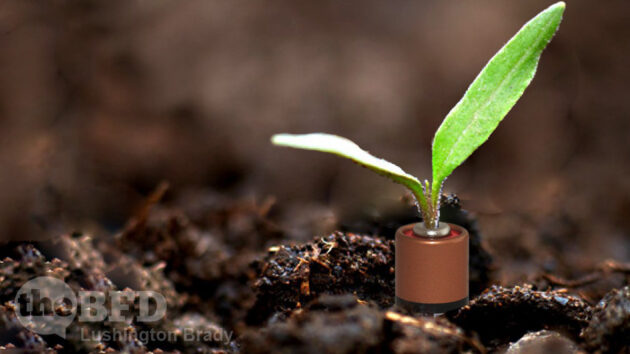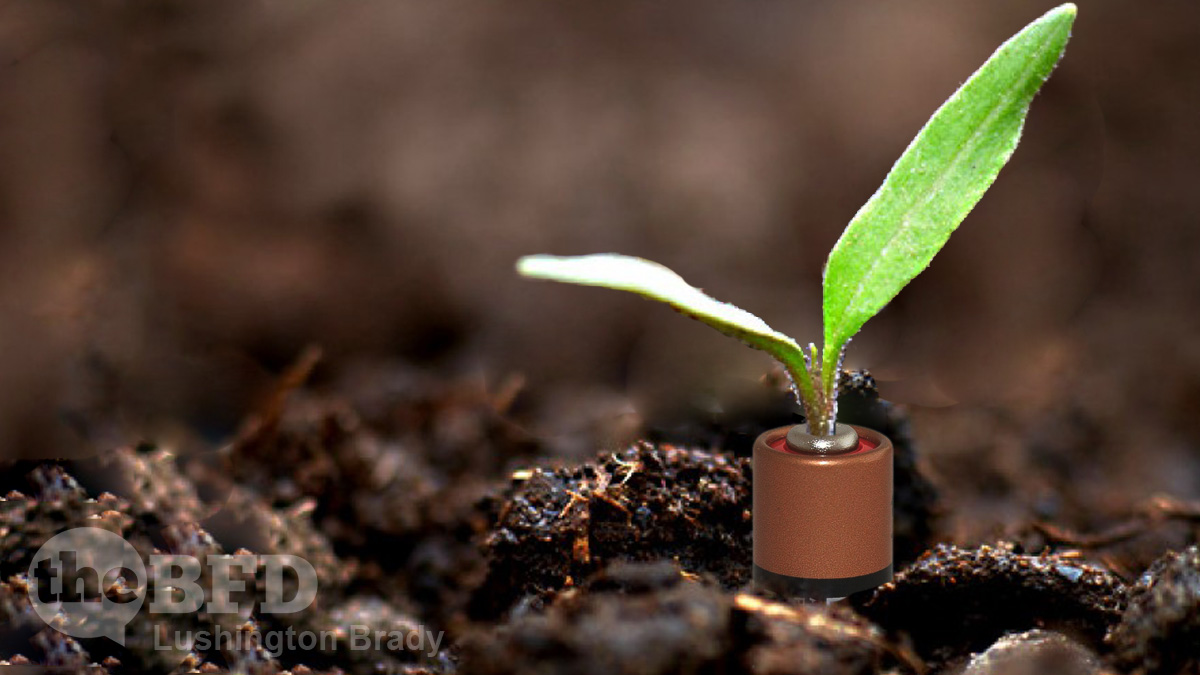I recently reported on a promising technology whereby processed spinach plants can be turned into carbon nanosheets, which can in turn be used to make batteries and fuel cells more efficient.
In a neat and somehow appropriate twist, old batteries can also be recycled into plant food.
An Australian recycling company is turning old batteries into fertiliser for crops, in an effort to stop them from ending up in landfill.

We’re used to seeing old batteries as merely an environmental hazard, ending up in landfill and poisoning the soil.
97% of alkaline batteries in Australia are not recycled, these are the kind we put in television remotes, children’s toys and torches. Instead, they end up in ordinary rubbish bins where disposal methods mean the chemicals that provide us with portable power can leak into the soil, causing pollution[…]
For the batteries that are recycled, most power plants use extreme heat to melt down the metals inside them to be used again. But there’s one problem, everything else is burnt off, leaving other elements, which have been mined from natural sources, unused where they could be being repurposed elsewhere.
Enter capitalist enterprise.
Envirostream wants to do things a bit differently. Part of Lithium Australia, which recycles all kinds of batteries, it is taking these other ingredients and turning them into something with the power to help plants grow.
“Globally, the disposal of alkaline batteries has become a major problem,” said Adrian Griffin, managing director of Lithium Australia, in a press release. “Our plan for repurposing the active components of the spent cells is not only a significant step towards worldwide environmental management of the issue but could also have a powerful influence on the sustainability of disposable batteries.”
There remains the fact that some chemicals in batteries are toxic: mercury especially, as well as zinc. There’s not much can be done about that – but that doesn’t mean that the environmentally-useful chemicals can’t be extracted and re-used.
This new method takes micro-nutrients present in alkaline batteries and turns them into vital food for crops. Zinc, which is present in many alkaline batteries, helps plants to make a chemical called chlorophyll. This is what makes plants green and without it they can’t use sunlight to turn water and CO2 into energy.
A similar process has already been employed by Finnish company, Tracegrow, who turn used alkaline batteries into products that enrich soils for growing food crops. It is part of a circular economy plan that aims to minimise the exploitation of the planet’s natural resources by using them for as long as possible[…]
Trace elements are purified and put safely back into nature as products for farming. So far, the fertiliser has been used on tomatoes, cotton and avocados with good results state the company.
Euronews
A “circular economy” still leaves the problem of sourcing the energy necessary to run the recycling processes. Nevertheless, re-using even some of an old battery instead of just bunging it into landfill has to be a step forward.
Please share this article so that others can discover The BFD

